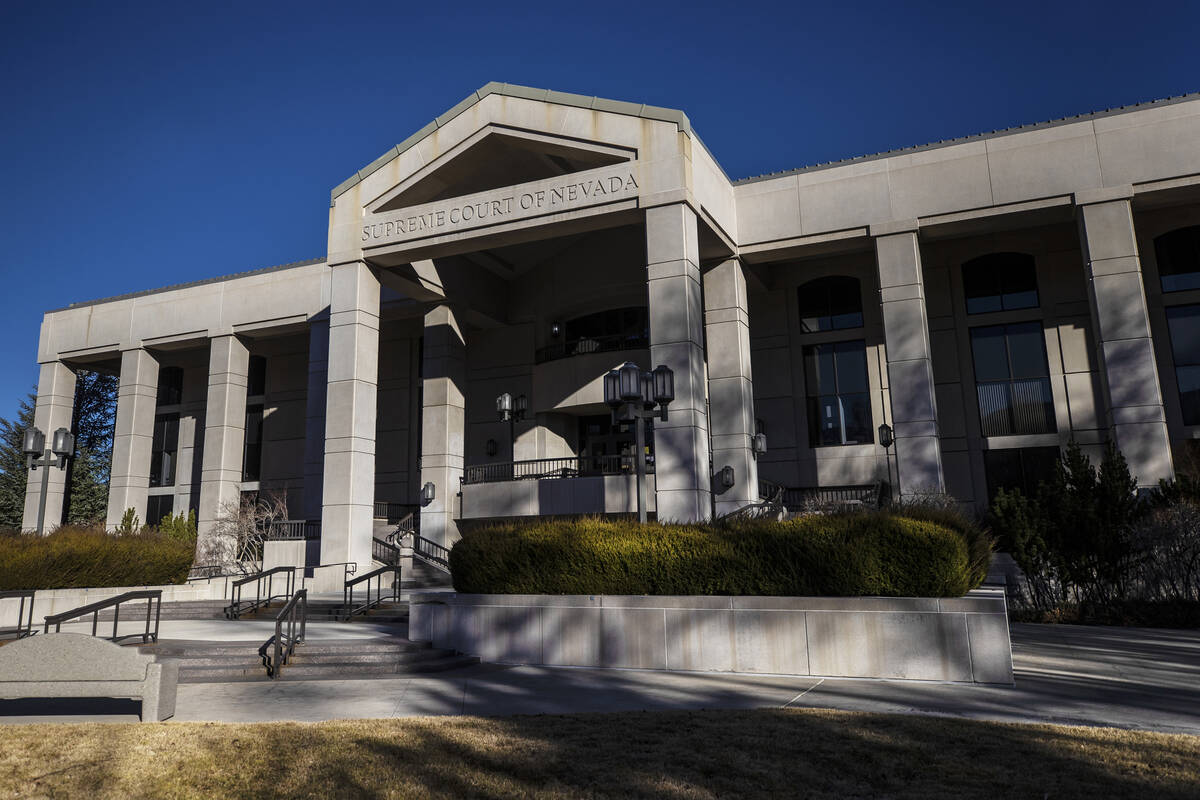Justices hear arguments over voucher-style program as petition deadline nears
The Nevada Supreme Court will decide the fate of a ballot initiative that would allow parents to use state money to pay for private school after hearing oral arguments in a lawsuit challenging the proposal Thursday.
But when that decision is handed down could play a major role in whether the proposal makes it to the ballot this year.
The case involves a proposed constitutional amendment that Education Freedom for Nevada, a political action committee, is looking to put to voters that would require the state Legislature to create an educational savings account or voucher-style program for K-12 students by 2025.
Top officials at the art- and education-focused charitable organization, The Rogers Foundation, in February sued to block the initiative from moving forward. A lower court judge in April blocked the group from gathering signatures for their effort, ruling that the petition was missing crucial details about the plan’s effect on public schools and that it was unconstitutional because it created an unfunded mandate.
Time is of the essence for the group, though, as it faces a June 29 deadline to gather the required 140,777 valid signatures required to qualify it for the November 2022 ballot.
That was the first question the justices had for the proposals supporters in Thursday’s hearing, with Chief Justice Ron Parraguirre asking the attorney for Education Freedom for Nevada, Jason Guinasso, how many signatures they’ve gotten at this point.
Guinasso said he was “not sure at this point.”
“We’re going to work like crazy to get the signatures in the next couple of weeks. We may fall short, chances are we will,” he said. “But the bottom line is we’re here asking for a chance.”
Under the proposal, parents could use state dollars, which the petition says would be comparable to public school spending and come from the account that funds public education in Nevada, to provide students with education outside of public schools. The petition does not say specifically how the initiative would be funded other than that it could be through a tax increase or by reducing government services.
The justices questioned whether the proposal would improperly force a future Legislature to pass legislation and whether the description of the petition is clear enough for people to understand that it would be taking funds away from public schools and public school districts.
Guinasso told the justices that those issues should be debated later on in the process, not at this point while signatures are still being gathered.
Bradley Schrager, an attorney representing The Rogers Foundation, argued that the petition has “fatal flaws,” including that it would force a future Legislature to pass a law, in this case the 2025 Legislature. He asked what would happen if the Legislature failed to pass such a bill in that session, and said that lawmakers in each session of the Legislature “must be free to consider and deliberate.”
“The separation of powers demands that each branch, and each player in the branch, observe its particular role. If you want to do something by initiative, do it. Write a statute. Write a proper constitutional initiative,” Schrager said. “Don’t order the Legislature to do it. You can’t do that.”
The Supreme Court will issue a ruling on the case at a later date, but justices gave no indication when that might happen.
Contact Colton Lochhead at clochhead@reviewjournal.com. Follow @ColtonLochhead on Twitter.


















